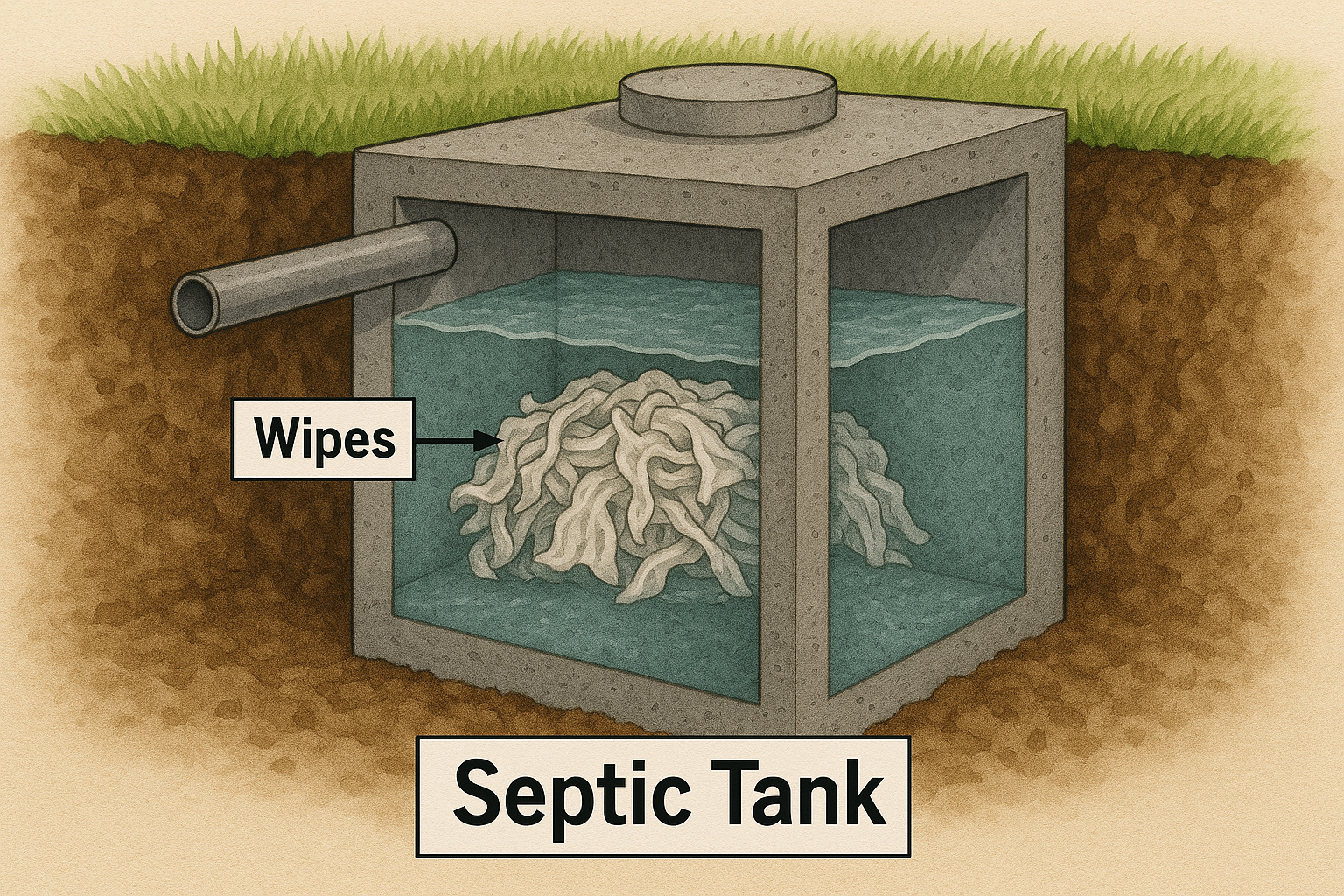When it comes to maintaining a septic system, homeowners often wonder if septic tank additives are a must-have or just another unnecessary expense. With so many products on the market claiming to improve septic performance, prevent backups, and extend system life, it’s natural to ask: Do septic tank additives really work, or are they just a waste of money?
At Sequoia Pumping, we’ve served customers throughout the Central Valley, including Fresno, Clovis, and Madera, for decades. We’ve seen firsthand what works—and what doesn’t—when it comes to septic system maintenance. Let’s break down the facts about septic additives.
What Are Septic Tank Additives?
Septic tank additives come in two main types:
- Biological Additives – These contain bacteria, enzymes, or yeast meant to help break down waste and keep the natural bacterial balance inside the tank.
- Chemical Additives – These include products with acids, alkalis, or other synthetic chemicals that claim to break down grease and solids.
Each type is marketed as a way to improve septic function—but do they actually work?
Do Septic Tank Additives Help?
The Case for Biological Additives
Septic systems rely on natural bacteria to break down waste. Some experts argue that adding extra bacteria and enzymes can help boost this process, especially if the system has been exposed to antibacterial soaps, bleach, or harsh chemicals that kill off beneficial bacteria.
🔹 When Biological Additives Might Help:
✔ If you’ve recently had your tank pumped and want to restore bacterial balance.
✔ If you use a lot of antibacterial cleaners, which may reduce natural bacteria levels.
🔹 When They’re Unnecessary:
❌ A healthy septic system already contains the necessary bacteria—it doesn’t need extra help.
❌ Most waste breaks down naturally without intervention, as long as the system is properly maintained.
The Case Against Chemical Additives
Chemical-based septic additives often claim to break down grease, solids, or sludge, but they can actually do more harm than good.
🚨 Potential Problems with Chemical Additives:
⚠ They can disrupt the natural bacterial balance in your tank.
⚠ Some chemicals damage your drain field by breaking down soil structure.
⚠ They may push solids into the drain field too soon, causing clogs.
The EPA and many septic professionals warn against using chemical additives, as they can cause long-term damage to your system.
What Actually Works for Septic System Maintenance?
Instead of relying on additives, the best way to keep your septic system healthy is to follow these proven practices:
✅ Regular Pumping – Have your tank pumped every 3–5 years to prevent backups and maintain efficiency. At Sequoia Pumping, we offer reliable septic pumping throughout the Central Valley.
✅ Use Water Wisely – Excess water can overwhelm your system, so spread out laundry loads and fix leaks promptly.
✅ Be Careful with Household Products – Harsh chemicals, grease, and non-biodegradable items (like wipes) can cause major septic problems.
✅ Protect Your Drain Field – Avoid parking on it, planting trees nearby, or draining excess water into the area.
So, Are Septic Additives a Waste of Money?
In most cases, yes. If your septic system is functioning properly and you follow a good maintenance routine, you don’t need additives. Your tank naturally maintains the right bacterial balance, and regular pumping is the best way to prevent problems.
That said, if your system has been exposed to a lot of antibacterial products, a mild biological additive might help restore bacteria levels—but it’s not a substitute for proper maintenance.
Sequoia Pumping: Your Trusted Septic Experts in the Central Valley
If you want to keep your septic system running smoothly, the best solution isn’t a bottle of additives—it’s a trusted septic service provider. At Sequoia Pumping, we provide:
✔ Septic tank pumping to prevent backups
✔ Septic system inspections to catch problems early
✔ Expert advice on proper septic care for your home or business
📞 Call us today at (559) 233-2400 to schedule a service or ask any questions about your system!



